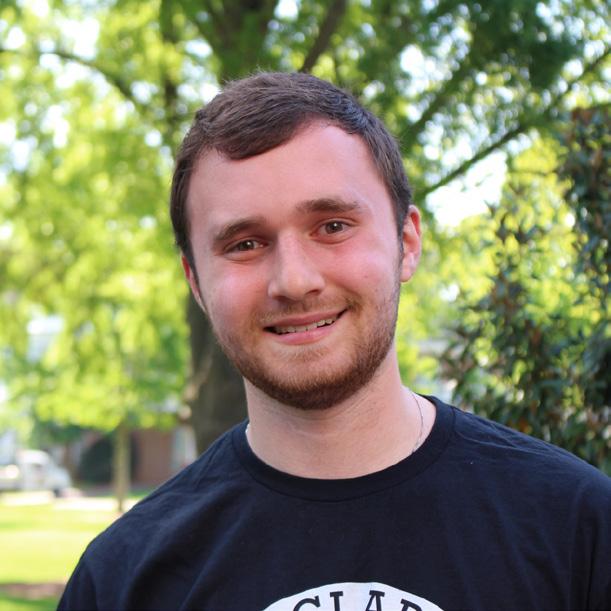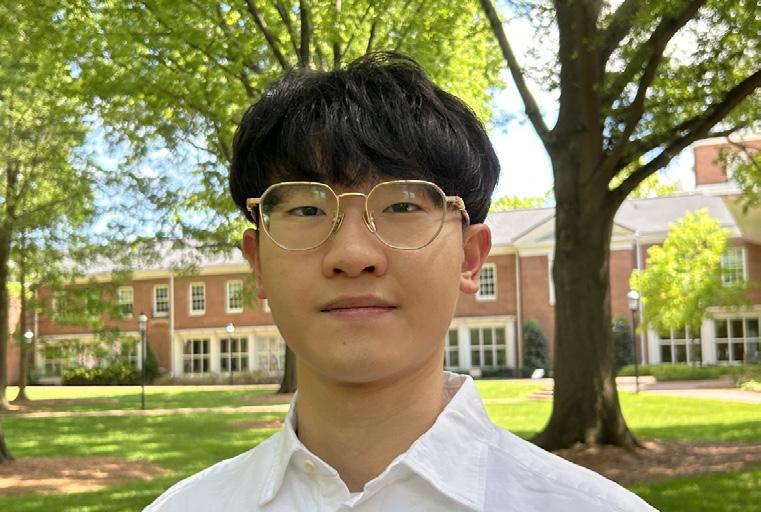
3 minute read
North Carolina proposed house bill will further limit abortion
The Human Life Protection Act will ban all abortions except in cases where a mother’s life is at risk
Powers
Advertisement
The Human Life Protection Act of 2023, proposed in the North Carolina House, would ban nearly all abortions, except when a mother’s life is in danger.
Republican Rep. Keith Kidwell was joined by Reps. Ben Moss and Ed Goodwin in filing House Bill 533 last month, which prohibits abortion except in cases that would result in a mother’s death or “impairment of a major bodily function.”
Liz Barber, senior policy counsel at the North Carolina American Civil Liberties Union, said she was unsurprised when this bill was filed.
“Abortion bans have been filed in North Carolina — what seems like every session. Some were even before Roe had fallen,” Barber said.

According to a Meredith College poll conducted in March, over half of North Carolinians want to keep or expand the current law on abortion access, which allows abortion up to 20 weeks and six days. Women who want abortions must wait 72 hours — or three days — after requesting one, must undergo an internal ultrasound at six weeks and obtain parental consent if they are 17 or younger.


Barber said the lawmakers who filed the legislation used language like “unborn child” instead of “fetus” in the proposed bill because it provokes a reaction.
“It is inflammatory,” Barber said. “They want to see this as something other than taking away a woman’s bodily autonomy because that’s ultimately what it is.”
She said while the proposed bill includes exceptions to the ban, like if a mother’s life is at risk, this caveat is ineffective.
“Exceptions don’t work,” Barber said. “Time and time again, there will be situations that come up that don’t fit into an exception.”
Barber said the decision to have an abortion or not should be between a patient and their physician.
“There’s no substitution for the judgment of a medical professional and the patient in front of them,” she said. “The government really has no place entering the exam room.”
Elon religious studies professor Rebecca Todd Peters said North Carolina’s abortion laws also require counseling for women who want abortions. She said this counseling is moderated by state counselors who use scripts.
“The scripts often include incorrect information about links with cancer,” Peters said. “These ideas that abortion can be linked with cancer later have been completely debunked by science and medicine, but they continue to be perpetuated by pro-life propaganda.”
Near Elon, there is only one Planned Parenthood clinic in Greensboro — 35 minutes away — and several others in the Research Triangle and Winston-Salem.
Peters said this presents a problem for university students who want abortions but lack transportation.
“For college students in particular, if you don’t have access to a car, it becomes a much larger burden,” she said.
Peters also said the idea of abortion regret is used as a scare tactic to discourage women who want abortions.
“These scripts are often framed as being beneficent for patients,” she said, “but they are really part of intimidation tactics by the state to convince women not to use their legal rights to abortion.”
In 2020, the University of California San Francisco conducted a study of nearly 1,000 women who sought abortions and found that five years after abortion, 95% said it was the right decision, with 84% reporting positive feelings or no feelings at all.
Rylei Smith, a senior public health and statistics double major, said she was disappointed when she heard about the proposed bill.
“It’s not a good decision. Abortion is healthcare,” Smith said. “There have to be ways that we compromise because people will suffer from laws like this.”
She said the bill will deteriorate trust between doctors and patients, especially those from various racial or ethnic backgrounds.
“There are already issues with people trusting the health care system, especially if you’re a person of color. There is just such a long history of issues with ethics,” Smith said. “And this is just going to make it worse for all women.”
Smith also said while some women may be able to find obstetricians — doctors specializing in pregnancy and childbirth — who will perform abortions, these are unlikely in a conservative area like Alamance County — where Republicans won all but one race on the midterm ballot last November.
“Some providers might be willing to do it despite the risks just because there are some really amazing people in the industry,” Smith said. “But it’s going to be terrifying.”
Smith also said the proposed bill will increase occurrences of abortion tourism, where women travel to other states or even countries where abortion is legal.
“This law will disproportionately affect women who are of a low socioeconomic status because they won’t have that option,” she said. “Wealthy women will.”
Smith said governmental policy must be improved to support mothers and children after birth.
“A child should be considered just as valuable after they are born as before they are born,” she said. “We lack a lot of social programs that would give them access to







